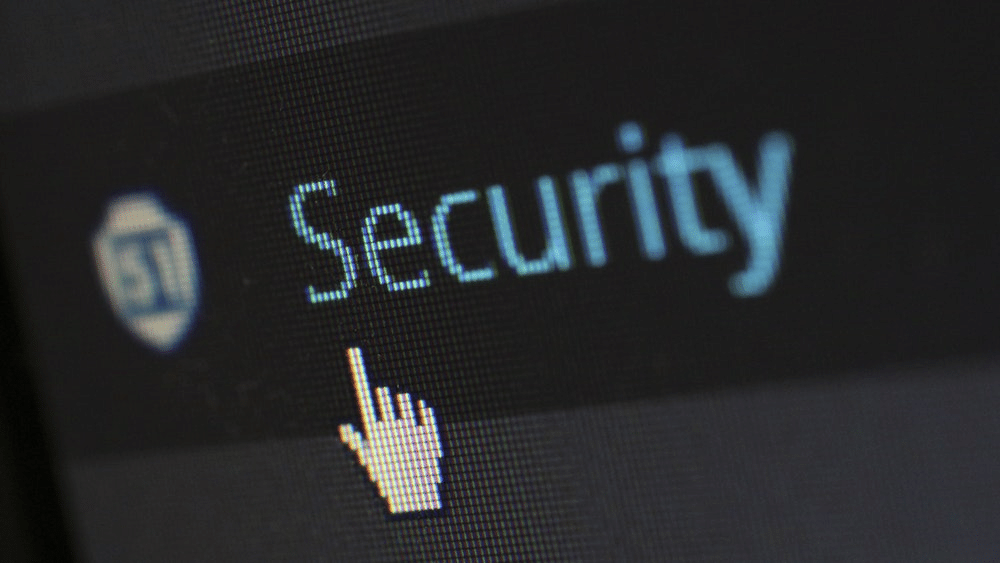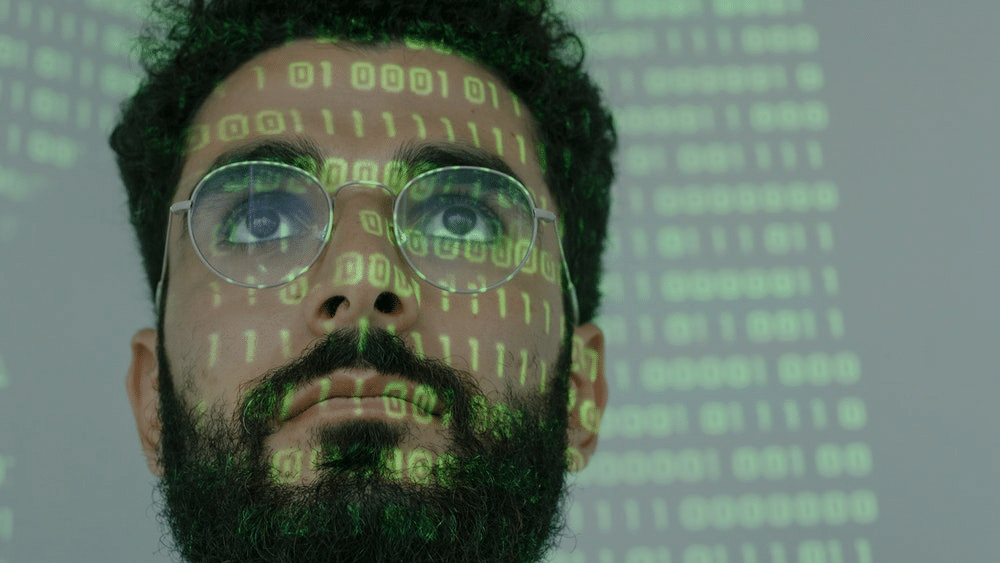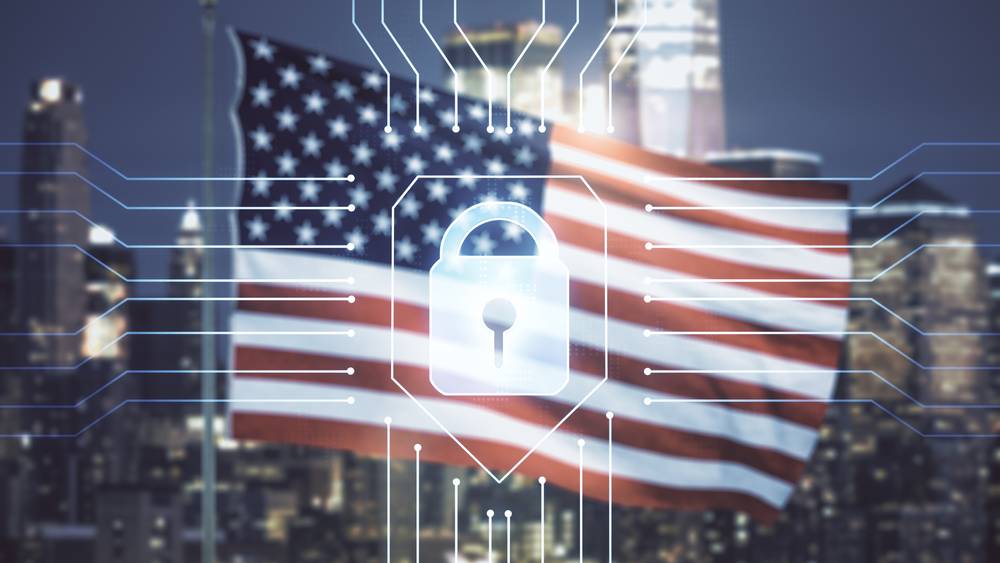Hi everyone!
Welcome to our well-researched and interactive Cybersecurity Degree Article.
Today, we will take you step-by-step through all there is to learn about system administration, cybercrime, digital forensics, and the best way to safeguard computer networks.
After carefully reading our complete and detailed article, you will be more knowledgeable about the best Cybersecurity Programs in the US, their importance, and the career opportunities that come with this career path.
In particular, we will focus our attention on:
- Introduction to Cybersecurity Degree
- Cybersecurity Field Curriculum
- General Education and Admission Prerequisites
- Degree Program Cost
Let’s get down to it!
Introduction to Cybersecurity Programs

More people than ever are pursuing degrees in Cybersecurity.
In the digital age, there are countless chances for cyber terrorists and hackers to prey on governmental organizations, people, and even major corporations.
Top organizations are willing to spend a lot of money on Cybersecurity Engineers who can fix holes to defend against security breaches and cyber-attacks and safeguard company data.
A Cybersecurity Degree teaches how to defend operating systems, computer networks, and data from online threats.
You’ll discover how to monitor your systems and counteract dangers as they emerge.
Students pursuing degrees take courses in networking, programming, and information security.
Practicums, internships, and projects are all common practical learning components in Cybersecurity Degrees.
These programs focus on developing both crucial and technical interpersonal skills.
But would you benefit from a degree in Cybersecurity?
We’ll go over everything there is to know about Cybersecurity and all the important questions future potential students ask before deciding to pursue a Bachelor’s or Master’s degree in Cybersecurity.
This guide reveals the coursework for IT Security Degrees.
The academic and practical abilities required for careers in technology are also emphasized in Cybersecurity Degree Programs.
Cybersecurity Degree Options

Doctoral Degree in Cybersecurity
A Cybersecurity Ph.D. usually takes thirty-six to seventy-two months to complete and develop advanced research capabilities.
A Bachelor’s with a high GPA, a Master’s degree in computer science, or a closely related discipline is required for admission.
Applicants may require letters of recommendation, a minimum GPA of 3.0, a CV, writing samples, and transcripts.
The cost of a Ph.D. Cybersecurity Programs vary by university, although those eligible for fellowships or assistantships may be given tuition waivers and living stipends.

Graduates work in the Cybersecurity field’s research and academics section after finishing their dissertations and coursework.
Professor, Information Security Consultant, and Computer and Information Research Scientist are all possible jobs after the degree.
Master’s Degree in Cybersecurity
A Master’s degree lasting twenty-four months offers advanced leadership and technical abilities.
Graduate students acquire skills in developing and carrying out information security plans.
Job opportunities in leadership and supervision are possible with the degree.
Risk Management, Enterprise Architecture, Cybersecurity Project Management, and Information Security Assurance are among the required courses for Master’s Programs in Cybersecurity.
Some Master’s degree programs in Cybersecurity demand a capstone or thesis.
A Bachelor’s degree certificate, letters of recommendation, a minimum 3.0 GPA, and a resume are frequently needed for admission.
Some institutions offering Cybersecurity may demand GRE scores.
Depending on the applicant’s educational background and experience, there may be a need to satisfy prerequisite computer science courses.
Graduates with a Master’s degree in Cybersecurity may be eligible for senior-level roles in the industry.
Security Managers, Chief Information Security Officers, Security Directors, and Information Security Consultants are examples of potential careers for professionals with this level of education.
Bachelor’s Degree in Cybersecurity
A forty-eight months Bachelor’s degree improves crucial abilities, including security incident response and intrusion detection.
Programs leading to a Bachelor’s degree in Cybersecurity may award BS or BA degrees.
While the two-degree options are comparable, a BS emphasizes more technical courses within the major, while a BA is more inclusive and includes classes from other fields.
Courses in Programming, Introduction to Scripting, Computer Science, Information Security, Cryptography, Safeguarding Visual and Cloud Systems, Security Risk Management, and Cybersecurity Capstone are typical courses for Cybersecurity majors.
Security Engineer, Security Architect, and Information Security Analyst are among the positions that graduates in BS or BA Cybersecurity get.
Associate Degree in Cybersecurity
An Associate’s degree in Cybersecurity can be obtained online or in person.
Schools offer Associate’s degrees in Cybersecurity in both the sciences and arts.
The first twenty-four months of a Bachelor’s degree are counted toward the similar curriculum of these degrees.
An AA comprises more liberal arts courses, whereas an AS concentrates more on science and math.
Learners are introduced to the essential ideas of Cybersecurity in a two-year Associate degree program.
Public community colleges could be the most economical option.
However, tuition varies by institution.
Students who complete their Associate’s degree in Cybersecurity online are eligible for entry-level jobs like Cybersecurity Analyst and Specialist.
Duties of Cybersecurity Professionals

Depending on the position level, whether a top Executive or an entry-level Analyst, a Cybersecurity expert manages a variety of cyber defense or security duties.
The primary goal of a Cybersecurity expert is to safeguard and defend people from more potent hostile threats.
A Cybersecurity professional’s primary duties include:
- Stop data loss
- Use specialized security for cyber attacks
- Protects the company’s network and data files from cyber threats
- Ensure the network security and safety
- Threat intelligence
- Security architecture
- Control the vulnerability
- Put up/Install firewalls
- Plan for security and keep an eye on internet activity

Cybersecurity experts use various tools, resources, and methods to safeguard sensitive information and identify vulnerabilities.
To defeat hostile hackers, they must stay current on the latest information systems trends and strategies.
The following list includes some of the crucial tasks and responsibilities a Cybersecurity expert must perform:
Breach Prevention
Cybersecurity experts stop network breaches in the organization by using the best resources on the market.
A Cybersecurity Analyst should be able to block an attack by using new software, data encryption software, firewalls, and fixing current security problems.
Ethical Hacking
A company’s system or computer network security actively looks for vulnerabilities and flaws through ethical hacking.
By doing this, a security system will be built, and potential attacks will be prevented.
By revealing the security issues and bugs found by hackers, they can find any weaknesses.
Incident Reaction/Response
The Cybersecurity Analyst mobilizes all resources as soon as there is an attack on a network to determine the root of the breach and make sure it doesn’t happen again.
They examine every possible entry point a malicious hacker uses into the system and determine what kind of recovery strategy to be put in place to ensure they are gone, and any further breaches are prevented.
Hacker Search
To address the security threat and stop potential security breaches, a security professional pays close attention to any suspicious actions.
Security Analysts analyze the organization’s weaknesses and take precautions since they know the type of information a hacker would seek.
Compliance
They ensure that their organization complies with the governmental and industry security standards through thorough study.
They are familiar with the company’s security policies and procedures in general.
Their responsibilities include protecting corporate data and guiding them through the dynamic field with sound security procedures and data protection.
Cybersecurity Curriculum and Coursework

Cybersecurity students are introduced to core concepts and programming languages early in their schooling.
They research concepts like vulnerability assessment and ethical hacking as they develop more sophisticated talents.
The courses that are frequently required in Cybersecurity Programs are listed below;
Certified Ethical Hacking
White hat hackers, commonly referred to as ethical hackers, examine a system’s security protocols in order to strengthen them.
Learners examine ethical hacking and penetration testing methods in ethical hacking courses.
They also gain knowledge about how to use security measures.
The curriculum gets students ready for the Certified Ethical Hacker exam.
Principles of Programming Language
Cybersecurity professions necessitate programming abilities, just as many other IT fields.
In programming courses, learners are introduced to fundamental computer programming principles and significant programming languages.
Memory Management, Control Structures, and Syntax are some of the topics covered in theory-focused courses.
Networking Concepts
Networks are used by a variety of enterprises to communicate with consumers, store and retrieve data, and link their systems.
In networking concepts courses, learners examine typical network security, network settings, and vulnerabilities in computer networks.
The course equips students with the networking abilities necessary for Cybersecurity positions.

vulnerability Assessment Security professionals recognize system dangers and flaws.
The students evaluate the information security vulnerabilities of a business in this course.
Students assess the infrastructure, make security system improvement suggestions, and do penetration tests.
Students are prepared for careers as Cybersecurity Analysts and Consultants by taking this course.
Programming in Python
Python is a popular coding language among Cybersecurity experts.
Python proficiency is developed by students during an undergraduate Cybersecurity curriculum through project-based tutorials and assignments.
Students are introduced to Python tools and the language’s uses in information assurance in this course.
Admission Requirements

Every institution has different admission standards for Cybersecurity Programs, so constantly consult the official website of your chosen course of study.
Having stated that the following are the most typical academic requirements:
For Bachelors in Cybersecurity
- English proficiency test results: TOEFL (minimum 70) or IELTS (minimum score of 6.0)
- A high school certificate with a minimum GPA of 3.0.
- Two recommendation letters
- Statement of purpose for academic work
- Online interview
Master’s Degree in Cybersecurity
- English language proficiency: TOEFL (minimum 75) or IELTS (minimum 6.5)
- Cybersecurity, Computer science, or a related subject Bachelor’s degree
- GPA minimum (established by each university individually)
- A motivational letter
Best Cybersecurity Program in the US

Arizona State University
The National Security Agency and the Department of Homeland Security have recognized ASU as a National Center of Academic Excellence in Information Assurance Education and a National Center of Academic Excellence in Information Assurance.
Ths Cybersecurity university provides a BS in Computer Science with a Cybersecurity emphasis.
Dallas Baptist University
Dallas Baptist University’s Master of Business Administration Program graduates will be equipped to lead teams, shape neighborhoods, and fortify relationships within families.
This 36-hour Master’s Program has a format that encourages the development of a learning community instead of just a network, and it may be finished in 2 years or less.
Entry Prerequisites
Prerequisites for Undergraduates:
- An application form
- A transcript from high school
- A Diploma from earlier education
- Letter of motivation or statement of purpose
- Evidence of language proficiency
Graduate Degree Specifications
- An application form
- Transcript
- A certification from earlier education
- CV or resume
- GMAT/GRE test results for entry (if required by the degree program)
- Letter of motivation or statement of purpose
- Evidence of language proficiency
- 2 letters of recommendation
Annual Cost of Tuition
19,900 USD.
Duration
3 years.
Cybersecurity Scholarships and Financial Aid

Currently, no internet resource compiles all the scholarship opportunities and financial assistance available to students studying Cybersecurity.
However, the United States offers excellent scholarship opportunities.
Check the prerequisites for each one as presented by the institution because some are only open to US citizens or those with a valid residency permit.

Additionally, you can look for scholarships based on the nation you intend to pursue your studies.
Searching for resources on the university website or asking the academic staff during the application process are excellent alternatives.
If financial aid programs are available, they can provide you with the relevant details.
Why Consider Cybersecurity Degree?
Cybersecurity is one of the fastest-growing sectors in various technological fields, such as infrastructure, IT, programming, and computer engineering.
With so many businesses and countries having a digital foundation and people and real-world infrastructure reliant on technology, cybersecurity is swiftly rising to the top of any organization’s priority list.
Is an Accredited Online Cybersecurity Degree Recommended?
Prospective students with other responsibilities, such as full-time or part-time employment, should consider earning their Cybersecurity degree online.
You can do this from anywhere in the world and learn at your own pace.
Additionally, you can watch courses as often as necessary and communicate with other students through message boards or social media groups.
Although there will usually be some flexibility, there will still be set deadlines for projects and tests, and you must meet them.
The opportunity to test out an online short course in IT Security before choosing whether you’re prepared to enroll in graduate or undergraduate courses is a huge benefit.
Cybersecurity short courses are widely available in colleges, online platforms, and universities, with prices starting at $100.
They give you a taste of online learning and typically last 4-12 weeks.
You can lower your study fees by earning an online Cybersecurity degree.
Cheap tuition prices are starting from $300 per academic year, and you won’t have to pay for housing, travel, or other expenditures associated with living abroad.
However, given the technical nature of degrees in Cybersecurity, you might need to spend money on the software or hardware utilized in online laboratories or your classes.
Before enrolling in a Master’s or Bachelor’s in IT Security degree online, make sure the program is accredited.
Although most online degrees are valid, you don’t want to waste your time and money on a bogus diploma.
Being conned while attempting to learn how to stop cybercrime isn’t exactly something you want to highlight on your resume, is it?
Things to Look Out For in Schools

Students looking into Cybersecurity schools should consider accreditation, location, and concentration options.
When investigating potential programs, students should also consider the professors’ qualities, the tuition expenses, and the residency requirements.
Scholars who attend in-state public colleges typically have to pay the lowest tuition costs.
However, many online programs allow all students to pay the same tuition fee regardless of residency.
Students can also enroll in the best programs in the country without moving, thanks to Cybersecurity schools online.

Another significant factor to consider is accreditation, which impacts prospects for financial help, credit transfers, and future employment.
For instance, some companies and certifying organizations could demand that graduates possess a recognized degree.
The only students who can transfer credits between accredited institutions and receive federal financial help are those who attend accredited institutions.
Students should investigate each potential school’s concentration options if they have specific career objectives or professional interests.
Course focus can aid students in acquiring the knowledge and abilities necessary to prepare for particular professional routes.
Accreditation for Cybersecurity Schools
Upcoming Cybersecurity scholars looking into programs should concentrate on regional and program accreditation.
Regional accreditation certifies that a school satisfies rigorous requirements for academic rigor, faculty credentials, and student learning results.
Compared to students enrolled in unaccredited universities, those who attend accredited schools have an easier time obtaining federal financial aid, finding jobs, and transferring credits.
The Council for Higher Education Accreditation recognizes autonomous regional accrediting bodies as the source of regional accreditation.
Students interested in Cybersecurity should search for ABET-Accredited Programs.
Programs with ABET accreditation are known for their high standards of security measures, instruction, and client satisfaction.
Students looking for recognized Cybersecurity degree programs should browse the ABET database.
NCAE Cybersecurity Criteria
The NCAE-C (National Centers of Academic Excellence in Cybersecurity) initiative is run at the National Security Agency by the National Cryptologic School to support Cybersecurity education and training in higher education.
To demonstrate that they meet strict educational requirements in the realm of Cybersecurity, postsecondary institutions can apply for an NCAE-C certification.
There are three different NCAE-C designations; cyber defense education, cyber operations, and cyber research.
Schools that offer Cybersecurity certificates and/or degrees at the bachelor’s, associate, and master’s levels are identified by CAE-CDE as regionally recognized institutions.
Regionally accredited four-year institutions that meet the requirements to be classified as R1, R2, or R3 universities are known as CAE-R institutions.
This designation is also available to Department of Defense Schools and military schools that provide Ph.D. degrees.
Schools having technical, practical, and multidisciplinary Computer Engineering, Computer Science, or Electrical Engineering Programs are identified by CAE-CO.
Future Outlook of Cybersecurity Jobs
The demand for Cybersecurity experts is outpacing the supply due to the rise in frequency and sophistication of cyber threats and attacks.
This implies that job stability is almost ensured for qualified Cybersecurity specialists.
The advantages of learning Cybersecurity are numerous.
Do you realize how desperately the world needs specialists in IT Security?
According to ISC2, there is now a global shortage of 2.92 million Cybersecurity specialists.
The U.S. Bureau of Labor Statistics also predicts a 25-35 percent rise in employment in this sector by 2030.
The work is exciting, well-paying, highly demanding, and intellectually stimulating.
Additionally, numerous specialties are available, given how the industry is developing and increasing.
Conclusion

Every day, complex malware, computer viruses, and frauds are released by hackers and cybercriminals, endangering the data that our civilization depends on.
The necessity for a Cybersecurity Degree is increasing along with the danger to security in the information technology industry.

Across the country, Computer Science Programs are responding to the demands of businesses and the government for improved data security and well-thought-out plans and procedures to preserve privacy.
More people are needed to fill Cybersecurity jobs than there are qualified applicants.
Starting a profession in Cybersecurity can lead to a decent salary, employment security, and the opportunity to work in a rapidly-evolving industry.
FAQs

Do you need a Degree for Cybersecurity?
Although obtaining a degree is the most typical route to a Cybersecurity Career, you are not required to do so to work in the industry.
In reality, the BLS reports that slightly over 25-35% of people employed in information security do not hold a Bachelor of Science degree or more.
How long does it take to get a Cybersecurity Degree?
Most online Bachelor’s degrees in Cybersecurity need four years and roughly 120-125 credits.
However, if you have Advanced Placement test results or college credits from a previous institution, you might be able to complete your degree more quickly.
What Degree for Cybersecurity?
Although an associate’s degree may be sufficient for some entry-level Cybersecurity employment, most occupations call for a four-year Bachelor’s degree in Cybersecurity or a related subject, such as Information Technology or Computer Science.
Is a Cybersecurity Degree hard?
Although learning Cybersecurity can be difficult, it doesn’t have to be, especially if you have a strong interest in technology.Develop an interest in the technologies you use, and you could discover that difficult abilities become simpler.
Is Cybersecurity a 4-Year Degree?
A conventional class-based Cybersecurity Bachelor’s degree program normally takes 120-125 credits to complete or a 4-year full-time study.
Competitive Master’s Programs in Cybersecurity typically need 30-60 credits or 2-year full-time study.
Students who enroll in accelerated programs or use transfer credits can graduate quicker.
Is Cybersecurity a good Degree?
Since there is a strong demand for professionals with these skills, Cybersecurity is a remarkable career to chase right now.
The BLS (U.S. Bureau of Labor Statistics) predicts that Information Security Analysts’ employment will increase by 29-32% between 2 years.
Is a Cybersecurity Degree worth it?
There are a plethora of reasons why earning a cyber degree is worthwhile.
By 2021, there are expected to be many more Cybersecurity jobs open globally than there are today, an increase from the current 1 million or so vacancies.
What is Cybersecurity Degree?
Cybersecurity is a field that grew out of how so many industries worldwide depend on computers.
Its important priority is to keep information and computer systems from being changed by people who shouldn’t be able to.
What can you do with a Cybersecurity Degree?
A Cybersecurity professional can work in any of the following sectors:
-Manufacturing
-Healthcare
-Finance
-Law Enforcement
Education
-Transportation and Infrastructure
-Government Agencies









